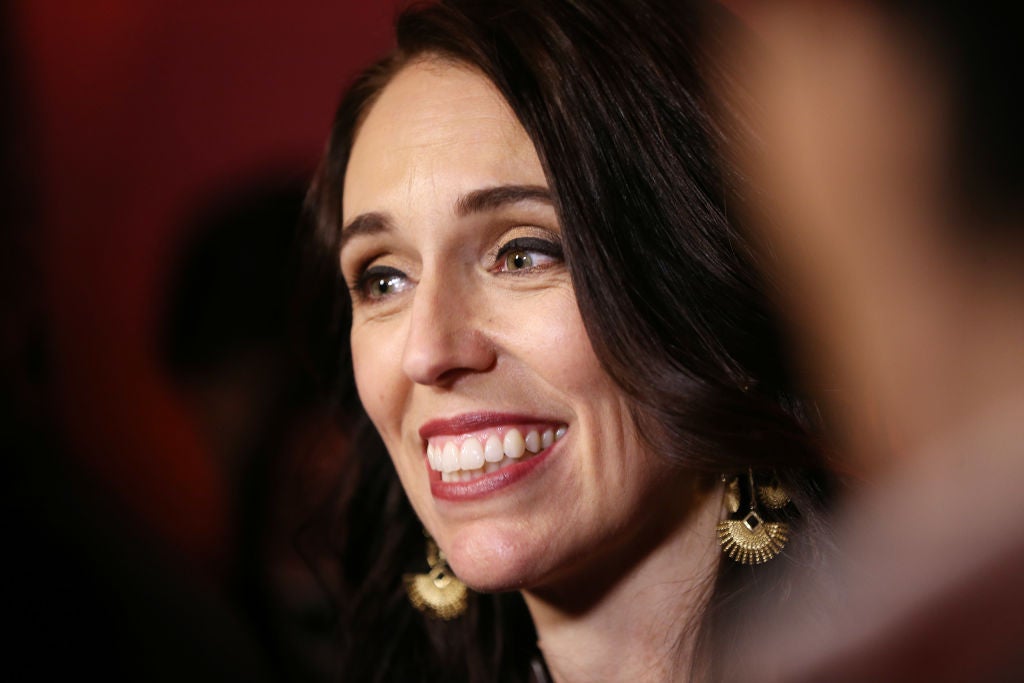Jacinda Ardern needs to be more than kind in her next term as New Zealand prime minister
The Labour party leader must move past protecting her image and focus on the hard unresolved issues, including a housing crisis, child poverty and climate change


Your support helps us to tell the story
From reproductive rights to climate change to Big Tech, The Independent is on the ground when the story is developing. Whether it's investigating the financials of Elon Musk's pro-Trump PAC or producing our latest documentary, 'The A Word', which shines a light on the American women fighting for reproductive rights, we know how important it is to parse out the facts from the messaging.
At such a critical moment in US history, we need reporters on the ground. Your donation allows us to keep sending journalists to speak to both sides of the story.
The Independent is trusted by Americans across the entire political spectrum. And unlike many other quality news outlets, we choose not to lock Americans out of our reporting and analysis with paywalls. We believe quality journalism should be available to everyone, paid for by those who can afford it.
Your support makes all the difference.Jacinda Ardern is a very nice woman.
For New Zealanders, whichever way you voted in this year’s general election, this much can generally be agreed upon.
She is empathetic, a skilled communicator, loves a selfie, can perform under pressure, can guide a country through multiple large-scale crises without inciting fear or hatred, and can juggle all that while being a new mum.
But even ardent Ardern fans have begun to admit that “being really nice” isn’t necessarily enough anymore.
And given that Ardern’s entire, Vogue-worthy brand has been built around exactly that, this presents something of a problem going forward.
Under Ardern’s leadership, New Zealand’s Labour party pulled off a landslide victory in today’s general election - becoming the first party with the opportunity to govern alone since New Zealand switched to a mixed-member proportional system in 1996.
Over at National HQ, on the other hand, a journalist remarked there were more media in attendance than partygoers.
Analysts and pouting National MPs credited the Covid-19 pandemic for saving Labour’s campaign; the success of Ardern’s handling of the pandemic evident in the Kiwis partying shoulder-to-shoulder on election night as Britain heads into another lockdown.
But as they did in 2017, people didn’t come out in force for Labour this election, they came for Ardern. And while Labour has been happy enough riding the coattails of its enigmatic leader’s profile, it’s not going to fly for Ardern’s second term.
The 40-year-old has been tested like no other leader worldwide in the last three years. The Christchurch terror attacks, the White Island eruption, the Covid-19 pandemic and economic fallout. Her response to all of the above has been internationally feted.
That popularity, bolstered by selfies, Facebook Lives, mob-like crowds and at times sycophantic international media praise, only solidified her celebrity status.
But for many, herein lies the problem.
The fawning and selfies have rankled those desperate to get on the property ladder as the country’s housing crisis spirals out of control, those waiting for action on climate change – which had been a 2017 campaign cornerstone – and those bleeding cash due to uncertainty around the country’s Covid-19 recovery strategy.
Ardern has been routinely criticised for being overly cautious, too fixated on and unwilling to upset the voting centre, and without the depth in her cabinet to enact any real, transformative change in her parliament.
Even the one million-strong Kiwi diaspora has turned against the Ardern government, now faced with a NZ$3000 (£1500) bill for a two-week forced quarantine every time they visit Mum and Dad.
It’s likely why Ardern took such a bizarre stance on international interviews in the lead-up to the election: enacting a blanket ban on them, for fear of too much positive coverage.
Opposition leader Judith “Crusher” Collins, on the other hand, gained ground presenting as the anti-Ardern. The veteran politician too was subbed in as leader fairly late in the game, after her predecessor quit abruptly in July. Collins mocked Ardern for her unrelenting positivity, scoffed at her “woke” policies, and showed she was unafraid to ruffle feathers. It didn’t necessarily help the New Zealand National Party in the polls, but Collins has won favour with her hard-line tactics.
Recent snide remarks ("obesity is a personal responsibility" and “is there something wrong with me being white?”) have seemed almost Trumpian in their intent to gall. One wonders if, with more time, Collins might have tested these waters even further, in an attempt to find favour with the same right-wing populism that propelled Trump into power. If Collins keeps the leadership post-2020 election, this will see a real challenge for the Ardern government – a fierce opposition with teeth.
In 2017, Ardern had a lot of work to do to prove she was more than “Jacindamania". Now, she has to prove that as well as being really nice, she can get stuff done.
Her first challenge will be how to re-engage with the rest of the world, as New Zealand remains effectively sealed off in the wake of the pandemic. She must find a way to leverage her huge following and transform it into investment for a country without international tourism for the foreseeable future. And, without much clarity on her goals for her next term, she will likely focus on election promises of bygone eras – narrowing the gap between rich and poor, tackling child poverty (for which she has taken personal responsibility), income inequality and the housing crisis, where Labour have failed to deliver increased supply promises.
A Labour party shaking off the shackles of the nationalist NZ First coalition should give Ardern more freedom, while swinging the balance of power back to the left. Curmudgeonly NZ First leader Winston Peters famously nixed the country’s much-anticipated capital gains tax and clashed with Ardern over her more progressive views.
But ironically, if Ardern chooses to form a Greens coalition she will have to push back on their progressiveness – a wealth tax, for example, will be a point of contention.
But the Greens’ strongest-ever result today proves the young, progressive demographic is more engaged than ever. The curbside outside Ardern’s Auckland house was transformed into a street party during election night, swarmed by Kiwis mostly too young to vote.
The youth will demand more from this government. It’s perhaps an opportunity for Ardern to blend kindness with decisive action.




Join our commenting forum
Join thought-provoking conversations, follow other Independent readers and see their replies
Comments